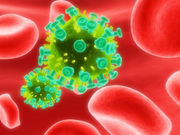But antiretroviral therapy also linked to significantly lower rates of early HIV transmission
WEDNESDAY, Nov. 2, 2016 (HealthDay News) — For HIV-infected pregnant women, antiretroviral therapy (ART) is associated with significantly lower rates of early HIV transmission, but with a higher risk of adverse maternal and neonatal outcomes, according to a study published in the Nov. 3 issue of the New England Journal of Medicine.
Mary G. Fowler, M.D., M.P.H., from the Johns Hopkins University School of Medicine in Baltimore, and colleagues randomized 3,490 HIV-infected women at 14 or more weeks of gestation with CD4 counts of at least 350 cells/mm³ to zidovudine and single-dose nevirapine plus a one-to-two-week postpartum “tail” of tenofovir and emtricitabine (zidovudine alone); zidovudine, lamivudine, and lopinavir-ritonavir (zidovudine-based ART); or tenofovir, emtricitabine, and lopinavir-ritonavir (tenofovir-based ART).
The researchers found that, compared to zidovudine alone, the rate of transmission was significantly lower with ART (0.5 percent in the combined ART groups versus 1.8 percent). Compared with zidovudine alone, zidovudine-based ART was associated with a significantly higher rate of maternal grade 2 to 4 adverse events (P = 0.008), and tenofovir-based ART correlated with an increased rate of grade 2 to 4 abnormal blood chemical values (P = 0.03). Birth weight <2,500 g occurred more often with zidovudine- and tenofovir-based ART than with zidovudine alone.
“Antenatal ART resulted in significantly lower rates of early HIV transmission than zidovudine alone but a higher risk of adverse maternal and neonatal outcomes,” the authors write.
One author disclosed financial ties to the pharmaceutical industry.
Copyright © 2016 HealthDay. All rights reserved.








